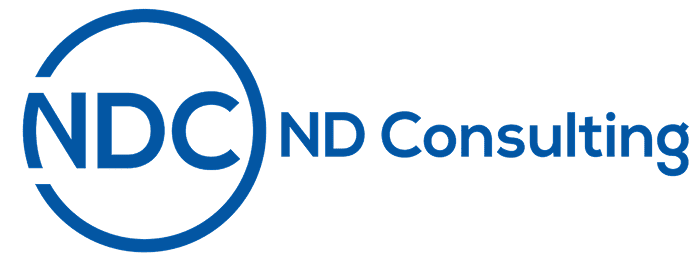Affordable housing administrators face a complex challenge on multiple fronts: regulatory compliance, deep subsidy tracking, resident eligibility verification, and maintenance workflows, often all at once. Yardi public housing brings tailored solutions to this arena, offering functionality built around the specific needs of housing authorities and subsidized programs. Given that the U.S. currently faces a shortfall of 7.1 million rental homes affordable and available to low-income renters, according to the latest National Low Income Housing Coalition report, the operational clarity delivered by an integrated system becomes critically important. This stat outlines how challenging it can be for organizations managing affordable and subsidized portfolios. If you’re one of them, there’s a platform that can help you navigate affordable housing challenges.
Yardi Public Housing reshapes workflows, strengthens compliance, and brings operational transparency to housing organizations that manage deeply affordable and subsidized portfolios.
Built-for-Purpose Functionality That Supports Housing Authority Needs
While many property management software suites serve general portfolios, Yardi public housing addresses the specific demands of affordable housing with features like resident income certification, lease renewal management tied to subsidy eligibility, and automated compliance workflows. These capabilities extend existing platforms by delivering modules geared to U.S. Department of Housing and Urban Development (HUD) regulations, low-income housing tax credit (LIHTC) programs, and other subsidy vehicles.
From the waterside of data management to the regulatory deep end, operations benefit. For instance, when a lease renewal automatically triggers income re-certification and subsidy recalcitration, administrative bottlenecks shrink. And when those tools link into the broader system, housing authorities gain visibility into lease expirations, subsidy roll-forwards, and occupancy trends in near real-time. This level of operational control supports better use of limited subsidy resources, improved resident management, and more efficient maintenance scheduling.
Integrating Core Operations Through Yardi Public Housing
One of the strengths of the system lies in its ability to unify previously fragmented workflows: resident tracking, maintenance operations, subsidy processing, and reporting. When properly implemented, Yardi affordable housing solutions reduce duplicate data entry, eliminate disparate spreadsheets and legacy systems, and replace them with a coherent operational hub.
Consider resident services. Many housing authorities still use manual tracking for eligibility and renewals. With Yardi’s platform, the renewal process triggers resident outreach, document upload, eligibility recalculation, and reporting, all within one workflow. Maintenance histories, vendor costs, and work-order metrics feed into the same operational data set. Moreover, maintenance delays or vendor billing mismatches no longer lurk unseen; they surface in dashboards built for housing teams.
By aligning operations in this way, the system also supports stronger financial performance like improved lease compliance and fewer subsidy write-offs. Many industry experts agree that when you automate workflows and tie them to property data, you free up staff time and improve outcomes.
Compliance Frameworks, Reporting, and Audit Readiness
The regulatory demands for affordable housing are among the highest in real estate. Agencies must track lease expirations, income fluctuations, utility allowances, subsidy changes, and program specific reporting. The Yardi housing authority software-capable modules support such heavy lifting: scheduled automated alerts, audit trails, documentation uploads, and custom dashboards for program performance.
Beyond functional features, the ability to generate reports tailored to HUD, state housing agencies, and investors is vital. The platform’s reporting engine supports the creation of standard formats or custom ones. Organizations gain improved clarity for subsidy utilization, property turnover, and financial stability. Compared to older systems, this transition often results in fewer manual errors, faster close cycles, and fewer compliance surprises.
In the context of the national affordable housing shortage, such clarity matters. With only 35 affordable rental homes available per 100 extremely low-income households, the pressure on housing agencies to perform has never been higher.
Scalability and Maintenance for Growing Portfolios
Many affordable housing providers no longer operate a single property; they manage multiple developments, some crossing state lines, each with distinct subsidy layers, ownership structures and maintenance networks. For those operators, Yardi low-income housing management tools offer scalability: modules can handle multiple entities, deal structures, and funding sources within one platform.
System maintenance matters too. Modules are upgraded, new regulations introduced, and workflows evolve. Without proper system upkeep, processes break down. Housing teams rely on system engineers or external partners to keep the software healthy: database optimization, user role audits, update validation, and vendor management reviews. Yardi subsidized housing tools support this by providing built-in frameworks for updates and system health maintenance, reducing the risk of breakdowns during sensitive periods like fiscal close or lease renewal spikes.
How Transparent Data Drives Better Outcomes
When operational information is scattered across spreadsheets, texts, and siloed systems, leadership lacks a cohesive picture. Yardi public housing gives teams access to dashboards that visualize subsidy uptake, occupancy trends, maintenance backlog, vendor performance and financial variance, all alongside resident-level data.
With that visibility, organizations can pinpoint where resources are under-utilized, where resident turnover is highest, or where maintenance costs escalate. This drives more strategic decisions, whether around capital planning, program expansions or vendor renegotiation.

Practical Considerations for Implementation
Adopting such a system is not a plug-and-play exercise. Leadership must evaluate existing data migration, custom workflows, staff training, and change management. A comprehensive rollout typically involves:
- Establishing clean data architecture (units, residents, subsidy levels)
- Mapping ownership entities, funding sources, and program obligations.
- Configuring workflows for resident renewals, lease events, maintenance and vendor payments.
- Training all user groups (resident services, leasing teams, maintenance, and finance).
- Setting up dashboards and custom reporting aligned with oversight agencies.
Working with experienced partners can help streamline this process, but even otherwise competent housing teams must allocate time for system validation, user adoption and post-go-live optimization.
Conclusion
Housing agencies face a demanding environment: limited funding, complex compliance, and escalating demand for affordable units. Solutions built for commercial property management often fall short. The use of Yardi public housing transforms how operations are managed by bringing integrated resident tracking, maintenance workflows, subsidy controls, and reporting into one cohesive system.
With tools crafted for affordable housing, organizations can align workflows, stay ahead of compliance pressure, and deliver services with clarity. In an era where the affordable housing deficit has reached millions of units, efficient management isn’t optional, it’s essential. For housing providers seeking to modernize operations and strengthen oversight, embracing Yardi public housing offers a way forward.





